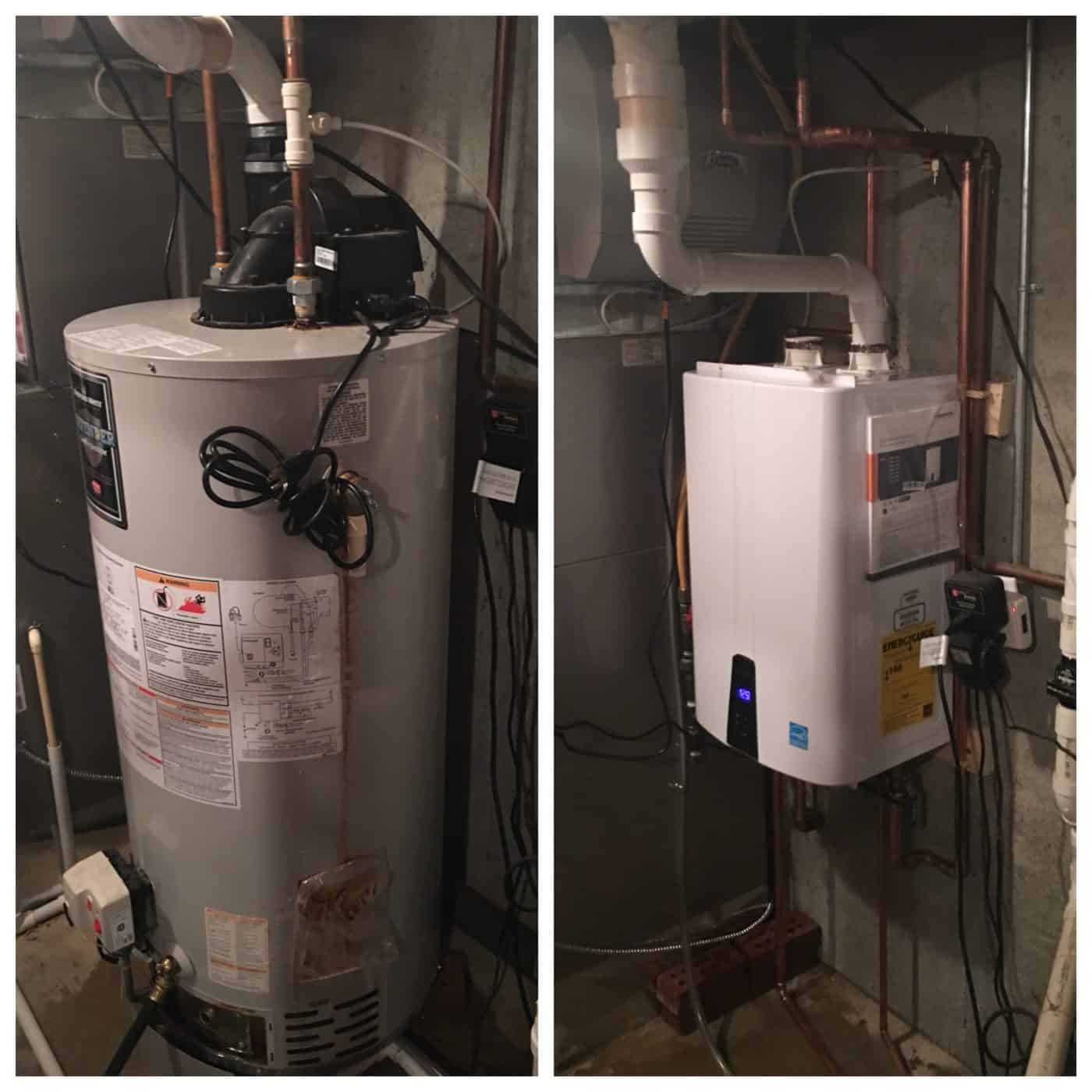Converting a gas water heater to electric involves removing the gas components and installing electric heating elements. This process requires professional expertise to ensure safety and compliance with building codes.
Switching from a gas to electric water heater can be a smart decision for several reasons. It can reduce the carbon footprint, as electric water heaters are more energy efficient and environmentally friendly. Additionally, electric water heaters eliminate the need for natural gas connections, making them ideal for homes without access to gas lines.
Moreover, electric water heaters can be easier to maintain and have a longer lifespan than gas models. It’s important to consider all factors and consult with a qualified professional before making the conversion.
Page Contents
Benefits Of Electric Water Heaters
Converting from gas to electric water heaters offers several benefits. Electric water heaters are known for their energy efficiency, which lower operating costs and reduce the environmental impact. In terms of energy efficiency, electric water heaters are 100% efficient, as all the energy is converted into heat, whereas gas water heaters lose some energy through venting. This means that electric water heaters can lead to significant long-term savings. Additionally, electric water heaters have lower operating costs due to their simpler design and maintenance requirements. Furthermore, electric water heaters do not produce greenhouse gas emissions during operation, contributing to a cleaner and more environmentally friendly option compared to gas water heaters.
Considerations Before Conversion
Before converting your gas water heater to an electric one, it’s important to consider various factors to ensure a smooth transition. These include:
Wiring And Electrical Requirements
Converting from gas to electric requires appropriate electrical wiring. Ensure that the electrical system in your home can handle the increased power demand. Hiring a qualified electrician to assess and upgrade your electrical system if necessary is recommended. Additionally, consider the location of the water heater in relation to electrical outlets and switches.
Plumbing Modifications
Switching from gas to electric may necessitate plumbing modifications. Electric water heaters typically have different water inlet and outlet connections compared to their gas counterparts. It’s crucial to assess your current plumbing setup and make any necessary modifications to ensure a proper fit.
Installation Space And Requirements
Electric water heaters require adequate space for proper installation. Take measurements of the available space to ensure the new water heater will fit properly. Additionally, consider the clearance requirements specified by the manufacturer to ensure proper ventilation and safe operation.
Conversion Process
The conversion process from a gas water heater to an electric water heater involves several crucial steps. The first step is the removal of the gas water heater. Ensure that you turn off the gas supply and disconnect any gas lines, carefully following all safety precautions. Next, drain the water heater tank and remove it from its position.
Once the gas water heater is removed, it’s time to install the electric water heater. Choose a suitable location for the new appliance, considering factors such as space availability, accessibility, and electrical requirements. Ensure that the area is well-ventilated and complies with local building codes.
After installing the new water heater, the next step is tackling the electrical connection. Make sure to follow the manufacturer’s instructions and hire a professional electrician if necessary. Properly connect the electrical cables, ensuring safety and adherence to electrical codes. Once the connections are made, it is crucial to perform a thorough testing process to ensure the electric water heater functions correctly.

Credit: www.cartersmyplumber.com
Frequently Asked Questions On Gas To Electric Water Heater Conversion
Can A Gas Water Heater Be Converted To Electric?
Yes, it is possible to convert a gas water heater to electric. However, it can be a complex process and may require professional assistance. It involves removing the gas burner assembly and replacing it with an electric heating element. The electrical supply to the unit also needs to be properly installed to ensure safety and efficiency.
Is It Cost-effective To Convert A Gas Water Heater To Electric?
The cost-effectiveness of converting a gas water heater to electric depends on various factors. While electric heaters are generally more efficient and have lower operating costs, the upfront cost of conversion and installation needs to be considered. Additionally, the availability and cost of electricity in your area should also be taken into account.
It is advisable to consult with a professional to assess the cost-effectiveness in your specific situation.
What Are The Benefits Of Converting A Gas Water Heater To Electric?
Converting a gas water heater to electric offers several benefits. Electric water heaters are typically more energy-efficient, resulting in lower utility bills. They also do not require venting, which can save on installation costs and provide more flexibility in terms of installation location.
Electric heaters can also be safer since they don’t have a gas flame, reducing the risk of gas leaks or carbon monoxide poisoning.
Conclusion
Switching from a gas-powered to an electric water heater is a smart and eco-friendly choice that can have numerous benefits for your home. By making this conversion, you can reduce your energy consumption, lower your utility bills, and contribute to a cleaner environment.
With the latest advancements in technology, electric water heaters are becoming increasingly efficient and reliable. Don’t hesitate to embrace this change and enjoy the long-term advantages it brings to your household. Start by consulting with a professional and take a step towards energy efficiency today.
